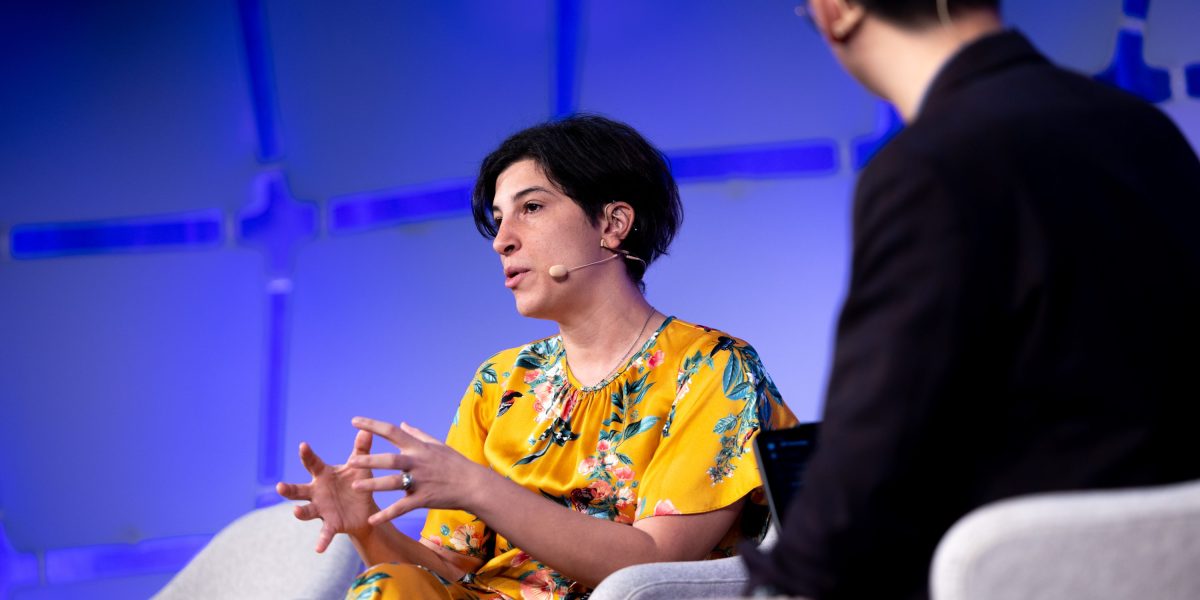Turkey taps tourism revenues in effort to steady its fragile economy
More than a dozen holidaymakers clambered into the basket of the hot air balloon for a trip over the moon-like landscape of Turkey’s Cappadocia region.
“It’s full, we’re all booked, that’s why I’m smiling,” owner Mehmet Halis Aydoğan said ahead of the early morning ride, one of about 140 that filled the sky each day this month.
After two years of coronavirus pandemic-related disruption, tourism in Cappadocia — like the rest of Turkey — is on course for a record year, helped by the plunge in the value of the lira that has made the country a cheaper holiday destination than many European rivals. Foreign visitor numbers were up 53 per cent year on year in July, according to government figures released on Monday.
The booming summer tourism season is a blessed relief not only for local businesses but also for President Recep Tayyip Erdoğan and his officials, who are racing to reel in as much foreign currency as possible to prop up the economy.
A surging energy import bill caused by the rise in global prices resulting from the war in Ukraine has fed a widening imbalance between Turkey’s imports and exports. That has heaped pressure on the lira, which has slumped from an exchange rate of about 8.6 to the dollar a year ago to more than 18 today, draining the country’s foreign currency reserves.
“The revenue from tourism is critical in this environment to ease the pressures,” said Selva Demiralp, an economics professor at Istanbul’s Koç University. “The government turned to tourism as the last option to save the day.”
It has been a rough few years for Turkey’s holiday industry. A record 45mn foreign visitors came in 2019, but fewer than 13mn arrived a year later as the coronavirus crisis took a heavy toll. The fall-off inflicted pain on tourist-reliant beach resorts as well as Istanbul, a popular city-break destination, and locations such as Cappadocia in Turkey’s central Anatolian heartland.
Numbers recovered partially in 2021, reaching nearly 25mn, but quarantine rules and travel bans ensured arrivals were well down from their peak.
Mehmet Güleşer, who sells scarves and trinkets from a small shop in the Cappadocian town of Üçhisar, resorted to collecting scrap to make ends meet. “We went through hard times,” he said. “But we came out the other side.”
Like many businesses, Aydoğan, whose Voyager Balloons is among the biggest local companies offering hot air balloon rides, took up the government’s offer of a nationwide scheme that paid 60 per cent of the salary of employees unable to work because of the pandemic.
He used cheap loans offered by the government to help him plug a cash flow gap, and used the time to diversify and begin manufacturing hot air balloons himself. “We tried to turn [the pandemic] to our advantage,” he said.

Normal operations are now back in full swing, with about 220 people per day signing up for hot air balloon rides that provide stunning views of the unusual rock formations and ancient churches.
Teyfik Ölmez, president of KAPTD, a local tourism association, said July was an “all-time best” for the region’s hotels even though Chinese tourists — who normally make up a significant proportion of visitors — are absent due to strict lockdowns in their country.
Their places are being filled by visitors from other Asian nations as well as by South Americans, Europeans and those from the US. Even Russians are still coming, despite fears that Vladimir Putin’s war in Ukraine and the economic fallout from western sanctions would keep them at home. Russian visitors were second only to Germans in the first seven months of the year, with Britons trailing close behind.
Oya Narın, head of the Turkish Tourism Investors Association, said Istanbul, in particular, was enjoying a bumper year. “Istanbul is magical and mystical, and international travellers recently started to discover it,” she said, adding that the weak lira was having “an important effect”.
Tourism businesses serving international visitors are largely sheltered from Turkey’s 80 per cent inflation and drop in the currency because their prices are stated in euros, pounds or dollars — or linked to foreign currency. Narın said the biggest problem for the industry was recruiting staff.
Tourism revenues are helping to limit the damage to Turkey’s economy from soaring energy costs, but experts say that it is unlikely to be enough to solve the country’s woes.
Barclays last month revised down its forecast for this year’s current account deficit — which reflects the imbalance between imports and exports — by $4bn to $35bn thanks to better than expected tourism receipts.
But it also warned this “temporary positive picture” would change from the autumn when tourism revenues fall as the weather turns colder, energy needs grow and foreign debt payments put pressure on the lira and foreign reserves. Erdoğan last week shocked markets by cutting interest rates even as inflation continues to rise.
Business owners in Cappadocia insist they are more than pulling their weight in the battle to bring in hard currency. Unlike at the all-inclusive hotels that crowd the coastline, visitors to their region pay not just for accommodation but also meals, drinks, taxis, entries to sites and activities.
Jakub Novák and Zuzana Klimecká, two young backpackers visiting from the Czech Republic, were drawn by the budget flights and “much cheaper” cost of travelling around Turkey than their own country.
At the other end of the spectrum, at Üçhisar’s Museum Hotel, rooms start at €600 a night and guests lounging at the edge of the infinity pool pay the equivalent of €16 for an Aperol Spritz.
Tolga Tosun, the owner, said the industry deserved credit for the fact that the lira has not yet slumped further than its current rate of about 18.1 to the dollar. “We’re bringing money into the country,” he said.
Last month was a record for his hotel on both occupancy levels and revenues. “They locked the whole world at home for a year and a half,” he said. “And now everyone wants to travel.”



